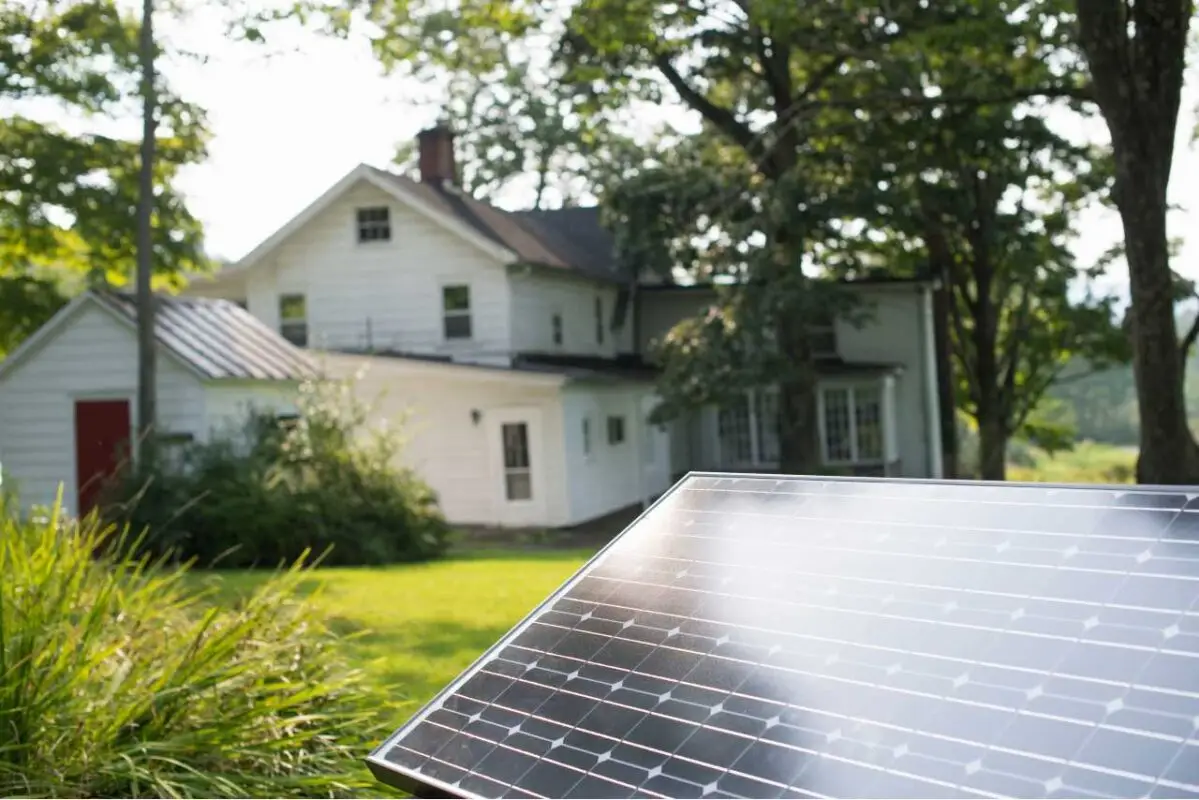Power Outage Proof Your Life: Battery Backup Systems for Canadian Homes with Solar
amily comfortably using electronics during a stormy night, with solar panels on the roof
Power outages are an unfortunate reality for many Canadians, especially those living in regions prone to severe weather like ice storms, blizzards, and strong winds. These unexpected disruptions can leave you in the dark, impacting your daily routines, safety, and comfort. Fortunately, there’s a solution that can provide peace of mind and keep your home powered up during outages: solar battery backup systems.
Understanding Solar Battery Backup Systems
A solar battery backup system stores excess energy generated by your solar panels during the day. This stored energy can then be used to power your home when the grid goes down. Think of it as an insurance policy for your electricity supply, ensuring you’re never left without power when you need it most.
Two Primary Battery Types
Lead-Acid Batteries:
Image Description: A close-up of a traditional lead-acid battery.
These are the more traditional and affordable option. However, they have a shorter lifespan and require more maintenance compared to lithium-ion batteries.
Lithium-Ion Batteries:
Image Description: A modern lithium-ion battery with sleek design.
-
- These are more expensive upfront but offer several advantages, including longer lifespans, higher energy density, and faster charging times.
- They are also generally more environmentally friendly.
Sizing Your Battery System: A Crucial Step
The size of your battery system depends on your household’s energy needs during a power outage. Consider the following:
- Essential Appliances: Prioritize powering critical appliances like refrigerators, freezers, medical equipment, and communication devices (phones, internet).
- Usage Patterns: Determine how much energy you typically use during a typical day or evening.
- Outage Duration: Consider the average duration of power outages in your area.
A qualified solar installer can help you assess your energy needs and recommend the appropriate battery size.
Installation Considerations for Canadian Homes
- Climate: Canada’s diverse climate, with its cold winters and hot summers, can impact battery performance. Choose a system designed to withstand extreme temperatures.
- Space Requirements: Battery systems require space for installation, typically in a garage, basement, or utility room.
- Local Regulations: Ensure your system complies with all relevant building codes and electrical safety regulations in your province.
The Cost of Peace of Mind
The cost of a solar battery backup system varies depending on factors such as:
- Battery type and capacity
- System size and complexity
- Installation costs
- Government incentives and rebates
While the initial investment may seem significant, consider the long-term benefits:
- Reduced reliance on the grid: Minimize disruptions to your daily life during power outages.
- Increased energy independence: Take control of your energy supply and reduce reliance on the grid.
- Enhanced home security: Maintain security lighting and alarm systems during outages.
- Improved comfort: Enjoy uninterrupted heating, cooling, and lighting during power disruptions.
Real-Life Examples: Canadian Homeowners Benefitting from Solar Battery Backup
Canadian family enjoying a meal in their kitchen during a winter storm, with a battery backup system powering their lights
Image Description: A family sitting around a dining table, enjoying a meal by candlelight, with a battery backup system powering essential lights in the background.
Meet the Smiths from Ontario: Frequent winter storms and ice storms used to disrupt the Smiths’ lives, leaving them without power for days. After installing a solar battery backup system, they now have peace of mind knowing they can stay warm, cook, and maintain communication during outages.
image Description: A cozy cabin nestled in a snowy landscape, with solar panels on the roof and a backup battery system providing power.
Meet the Johnsons from British Columbia: Living off-grid in a remote location, the Johnsons rely on solar power for their energy needs. Their battery backup system ensures they have a reliable power source, even during extended periods of cloudy weather.
Taking the Next Step
If you’re considering a solar battery backup system for your Canadian home, here are the next steps:
- Consult with a qualified solar installer: Schedule a consultation to discuss your energy needs and explore available options.
- Research government incentives: Explore available rebates and tax credits to offset the cost of your system.
- Choose a reputable installer: Select a reputable and experienced installer with a proven track record.
By investing in a solar battery backup system, you can empower yourself with energy independence, enhance your home’s resilience, and enjoy greater peace of mind during power outages.
Disclaimer: This blog post is for informational purposes only and should not be considered financial or investment advice. 1 Consult with a qualified professional for personalized guidance. 2


